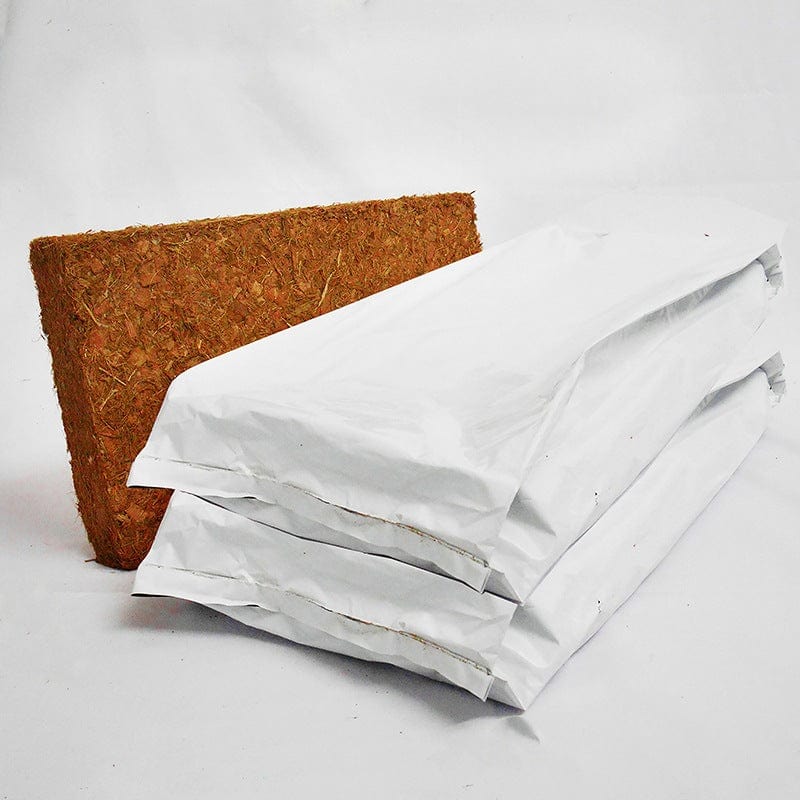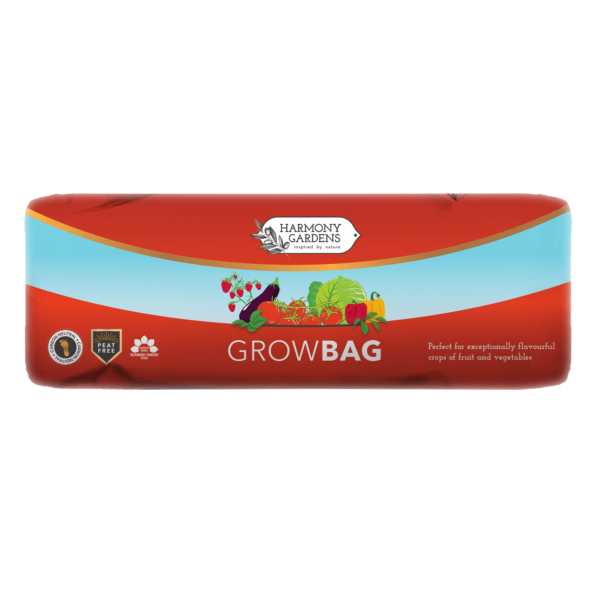Yes, many grow bags are peat-free. Peat-free options are growing in popularity due to environmental concerns.
Gardeners are seeking sustainable alternatives. Grow bags offer a versatile solution for planting. But what exactly makes them peat-free? Understanding the materials and benefits of peat-free grow bags is crucial. Peat extraction harms natural habitats, making peat-free choices important. These bags use materials like coir, compost, or recycled fibers.
They support eco-friendly gardening, reducing peat usage. Grow bags allow plants to thrive in various settings, promoting healthy growth. They are lightweight, easy to move, and suitable for indoor or outdoor use. Choosing peat-free grow bags can help protect the planet. Discover why these bags are a wise choice for gardeners who care about sustainability. Learn how they benefit both plants and the environment.
Quick Navigation
Introduction To Grow Bags
Grow bags are containers for plants. They are made from fabric. These bags are flexible and lightweight. People use them for growing vegetables and flowers. Grow bags have good drainage. They help plants grow healthy and strong.
Grow bags have many advantages. They are easy to move. You can place them anywhere, even on a balcony. They are space-saving. Perfect for small areas. Grow bags help prevent root rot. They provide excellent aeration. This lets roots breathe well. Plants grow better in well-aerated soil. Grow bags are also cost-effective. They are durable and reusable. A great choice for gardeners.

Peat In Gardening
Grow bags often boast being peat-free, appealing to eco-conscious gardeners. Using them can help reduce peat extraction, preserving peatlands. This choice supports sustainable gardening practices while still providing excellent drainage and aeration for plant roots.
Role Of Peat In Soil
Peat helps soil hold water. It is like a sponge. Plants love it. It keeps the soil loose. Roots grow better. Peat has nutrients. These help plants grow. Peat is good for acid-loving plants. It is used in potting mix. It is used for seeds. Peat improves soil structure. Soil with peat is soft.
Environmental Concerns With Peat
Peat comes from bogs. Bogs take years to form. Cutting peat destroys bogs. This hurts nature. Animals lose homes. Carbon is released. This is bad for air. Peat use harms climate. Peat is not renewable. People seek alternatives. Alternatives are better for the earth.
Peat-free Alternatives
Coconut coir is a great choice for growing plants. It comes from the husk of coconuts. This makes it a sustainable option. It holds water well and provides good air for roots. Plants grow strong and healthy in coconut coir. Plus, it is free from many pests and diseases. It also breaks down slowly, offering long-term benefits.
Compost is another excellent peat-free option. It is made from broken-down plant materials. This makes it rich in nutrients. Plants love compost as it feeds them well. Bark is also used to improve soil. It helps with drainage and air flow. Mixing bark with compost can be very effective. Together, they create a balanced environment for plants.

Eco-friendly Grow Bag Materials
Many grow bags are made from biodegradable materials. These materials break down over time. They leave no harmful waste. This helps protect our planet. Popular choices include coconut coir and jute. Coconut coir is made from coconut husks. Jute comes from plant fibers. Both are strong and safe for plants. These options keep the soil healthy. They also allow roots to breathe. This is important for plant growth.
Grow bags can also use recycled fabrics. These materials are made from old clothes or plastic. Using recycled materials is good for the environment. It reduces waste in landfills. The fabrics are durable and reusable. This makes them a smart choice for gardening. Grow bags with recycled fabric help save resources. They support sustainable gardening practices. This is important for our future.
Advantages Of Peat-free Grow Bags
Peat-free grow bags are kind to the earth. They help reduce peat use. Peat takes a long time to form. Using less peat protects nature. These bags use recycled materials. They help cut waste. By using these bags, you help save the planet. Every small step counts. Less peat means less harm to nature. Grow bags also last long. They support green choices. More people choose them every day.
Grow bags support strong plant roots. They keep soil healthy. No peat means less compaction. Roots can breathe better. This boosts growth. Plants get more nutrients. Healthy roots lead to healthy plants. Soil stays loose and airy. Water moves easily in the soil. This helps plants grow well. Good soil means better crops. Plants thrive in peat-free soil. Grow bags make gardens happy.

Challenges Of Peat-free Solutions
Peat-free grow bags often cost more than regular ones. The materials used are sometimes more expensive. This can make gardening more costly. Some people might find it hard to afford these bags. Choosing the right product becomes a challenge for many. Balancing budget with eco-friendly choices is tricky.
Finding peat-free options can be tough. Not all stores have them. Some areas have limited supplies. This makes it hard to switch to peat-free gardening. Online shopping can help but might add extra costs. It’s important to plan ahead and check local availability.
Selecting The Right Grow Bag
Grow bags should be durable and last a long time. They need to have good drainage for healthy plant roots. Material matters too. Fabric grow bags are light and easy to move. Size is another key factor. Bigger bags hold more plants. Cost is important if you want to save money. Some bags are more affordable than others. Environmental impact is a big concern. Peat-free options are better for the planet.
Some brands offer quality grow bags. Smart Pots are known for their durability. Root Pouch offers eco-friendly options. VIVOSUN makes affordable grow bags. Gardzen is praised for its strong handles. Each brand has unique features. Choose what suits your needs.
Conclusion: The Future Of Gardening
Gardening evolves with eco-friendly choices like peat-free grow bags. These bags offer sustainable solutions for plant growth. Embrace this green innovation to nurture your garden responsibly.
Trends In Eco-friendly Gardening
Eco-friendly gardening is a growing trend. Many gardeners choose sustainable practices. They use tools and materials that are safe for the Earth. Grow bags are one popular option. They help reduce waste and support plant growth. These bags are often peat-free. Peat is not good for the environment. So, using peat-free options is wise. This choice helps protect nature. It also supports healthier gardens. More people are using these solutions daily. It shows a shift towards green gardening. This trend is likely to continue. People care about the planet. They want to do their part. Eco-friendly gardening is the future.
Personal Steps To Take
You can start small in your garden. Try using peat-free grow bags. They are easy to find. This choice helps the environment. Also, use natural fertilizers. They are better for plants and soil. Avoid chemicals that can harm nature. Composting is another helpful step. It turns waste into rich soil. This soil can feed your plants. It saves money and reduces waste. Choose native plants for your garden. They need less water and care. These steps are simple but effective. They make gardening fun and eco-friendly.
Conclusion
Choosing peat-free grow bags benefits the environment. These bags reduce carbon emissions. They also support sustainable gardening practices. Peat-free options use materials like coir or compost. These materials promote healthy plant growth. They also help conserve vital peatlands. Making this switch can support biodiversity.
It also aids in maintaining ecosystems. Consider your options carefully. Select a product that aligns with your gardening needs. Environmentally friendly choices make a positive impact. Small changes can lead to big results. Sustainable gardening is a step towards a greener future.
Let’s nurture our plants and planet together.